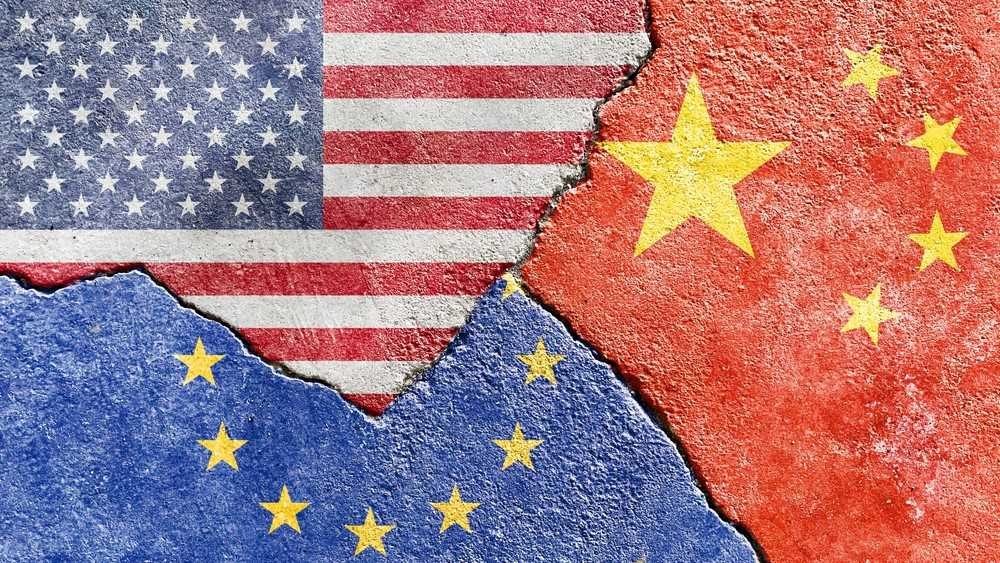If we cut ties, it would knock out the European economy, Péter Szijjártó said in Tianjin, China.Continue reading

The Prime Minister’s Political Director recently wrote an article in the National Interest titled A Central European Proposal for the Revival of Europe. According to Balázs Orbán, Europe must prepare for the coming multi-polar, post-Western hegemony world, and in this context, he came up with five proposals for the future.
In his article, Balázs Orbán argues that over the past decades, “political and economic restructuring has led to the erosion of the prevailing Western hegemony.” However, he adds that this does not mean that the West is being replaced by a non-Western hegemonic force, we are rather talking about a leveling off in the competition between the East and the West. Meanwhile, Hungary and the other Central European states are growing increasingly concerned about Europe’s diminishing capacity to engage in this competition, and these countries play a significant role in the future progress.
“The West’s dominance over international relations, resting upon three key pillars, is visibly diminishing,” stated Orbán. According to him, “the first pillar was the West’s longstanding dominant position as the global economic powerhouse for two centuries. The second pillar involved the establishment of institutional bodies in international relations and trade by the West, granting them the ability to shape the rules of globalization. The third pillar relied on the idea that the United States, as the hegemonic superpower after the collapse of the USSR, would collaborate with Europe to promote the neoliberal political and economic model, aiming for a more peaceful world.”

Photo: Facebook/Balázs Orbán
In Orbán’s opinion,
it was the third pillar that has failed particularly, since the imposition of the neoliberal political and economic model not only resulted in alienation from the rest of the world, but paradoxically brought together its adversaries in increasingly closer cooperation.
He goes on to list the areas in which the West has fallen behind. One such area is the share of global economic output, where the West’s output had been exceeding the 50 percent mark back in 1990, but by now, that figure has decreased to 30 percent. Meanwhile, the world’s raw materials and energy resources are mostly located outside the West, further increasing the power of the East. It is only the United States that has a slight advantage in this regard, due to its vast shale oil and gas reserves, but otherwise the West has been unable to fully compensate for this disadvantage, the political director writes.
Demographic trends also work against the West, Orbán points out, shedding light on the fact that the world’s population surpasses the eight billion mark, with seven billion individuals living in non-Western countries.
At this point, he cites the efforts of Hungary and a handful of like-minded governments to implement family policies aimed at increasing fertility rates, but adds that despite these policies, the trends still indicate a deep demographic crisis in the West, particularly in Europe.
According to the Prime Minister’s Political Director, “the future unfolds as a multi-polar world, with the West being just one of several power centers. Despite this, Central Europeans are eager to see the West effectively compete with the non-Western world. Our aspiration is for a prosperous Europe, where we play a significant role in its achievements.”
He highlights that nowadays, Europe has many divisive issues concerning identity and values, adding that
Western European nations and their Central European counterparts often differ in their approaches to immigration, the family unit, national roles, the essence of liberal democracy, and the protection of children.”
Orbán pointed out another significant challenge: some want Europe to align exclusively with a great power, effectively decoupling from the rest of the world. However, he emphasizes that Hungarians believe such an approach to be flawed. “What we need instead is to focus on connectivity, actively avoiding peripheralization and fostering connections with a broad range of countries and market players.”
At the end of his article, the political director listed five proposals regarding the revival of Europe. The first proposal is about maintaining the idea that a successful European Union relies on the cooperation of independent and sovereign member states.
Preserving our national sovereignty, which Central European people have fought for over centuries, as well as the distinct political and cultural identities of European countries, is crucial,”
he writes.
As a second proposal, he stated that Europe should pursue EU expansion. “The conflict in Ukraine has starkly highlighted the EU’s limited control over its immediate neighborhood, and enlargement could offer a partial solution. However, this can only succeed if we reduce the over-centralized bureaucratic power in Brussels,” he argued.
Thirdly, Orbán continued that
it is important for Europe to establish its own standing army as a means to defend itself, thereby reducing its dependence on the United States.
“Fourthly, it is imperative to strengthen Europe’s competitiveness, and a critical factor in attaining this objective lies in securing affordable energy access. Without affordable energy, the decline of European industry and the precarious situation faced by the struggling European middle class would become inevitable. The green transition should be pursued gradually, avoiding outright bans on specific energy sources and suppliers,” he pointed out.
As the last proposal, Orbán thinks that
Europe must preserve its Christian values within its political framework, since these values establish a shared cultural foundation upon which European states can collaborate.
“Central European states are not miracle workers, and expectations of miracles are unwarranted. However, by implementing these suggestions, Europe can preserve its competitive position in the changing global landscape, ultimately contributing to the strengthening of the West,” the political director concluded.
Featured photo via Twitter/Zoltan Kovacs